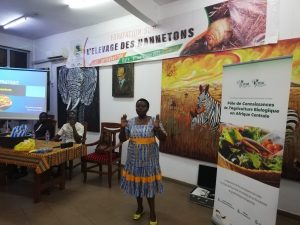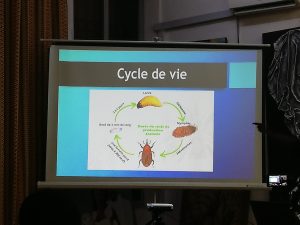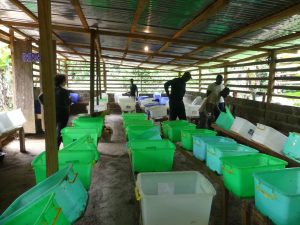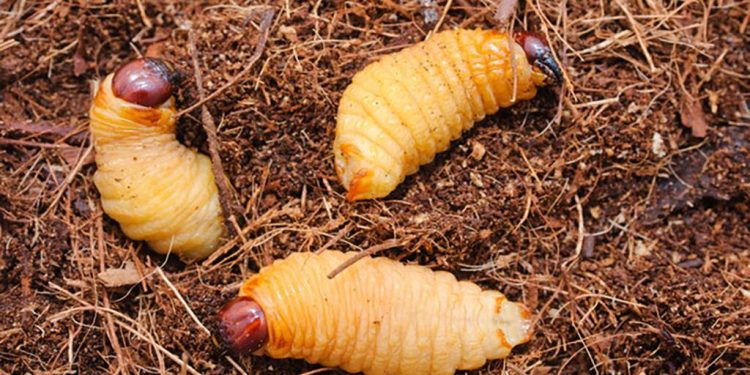Story, Louvier Kindo Tombe
The training session took place on Friday, September 1, 2023 at the Yaounde Handicraft Center. It was the first in a series of two to be organized by the support services for local development initiatives (SAILD).
The training falls within the framework of the second phase of activities of the Knowledge Center for Organic Agriculture (KCOA) in the Central African Sub Region.
The idea of the training was in response to requests from readers of the farmers magazine, La Voix Du Paysan.
“We received a good number of requests from readers interested in agroecology, especially insects breeding,” says madam Marie Pauline VOUFO, focal point KCOA at SAILD.

“We opted for may-beetles because it is not only easy to breed, but more environmental friendly among other benefits.”
The world is gradually in a transit towards agroecology, and SAILD is contributing by promoting vital information relative. To madam VOUFO, “the objective here is the promotion of agroecology”.
The second phase of activities of the Knowledge Center it should be be noted was launched in Yaounde on July 17, 18 by the German Cooperation (GIZ).
May-beetles breeding

This is one of the very few farming practices that doesn’t need enough capital, space and resources to operate. The world is currently into mitigating climate change effects, and may-beetles breeding is encouraged for farmers for it doesn’t need to destroy the forest or use chemicals on the soil.
During the training workshop that comprised of both theoritical knowledge and practical application, the farmers were schooled on the various stages needed in the process.
They were told that the first thing to do is to look for male and female may-beetles that will meet inside an open space container. But certain conditions need to be met.
“It should be in a shaded and secured corner of the compound with a temperature of between 15-35⁰C,” says Aristide Tchounkeu, expert at SAILD.
A specified quantity of grinned food stuff (cassava, maize, ..) are mixed with water to form a paste, which is then placed in a container and some bananas or sugarcane placed untop with a good quantity of coconut husk.

The beetles are then put in the container. They will feed on the content which will also serve as breeding ground.
“It takes between 25 to 30 days for the egg of the insect to grow to the larva stage, says Aristide Tchounkeu.
Once at the larva stage, the farmer is supposed to interrupt the life cycle by taking out the larva from the container, which is the expected end product.
May-beetles at their larva stages “are very essential to humans as they feeds the body with important nutrients without destroying the system”, Aristide Tchounkeu said.
“They are very rich in animal protein.”
By encouraging the farmers to embrace the activity, SAILD is promising more information and training days in the months ahead.








